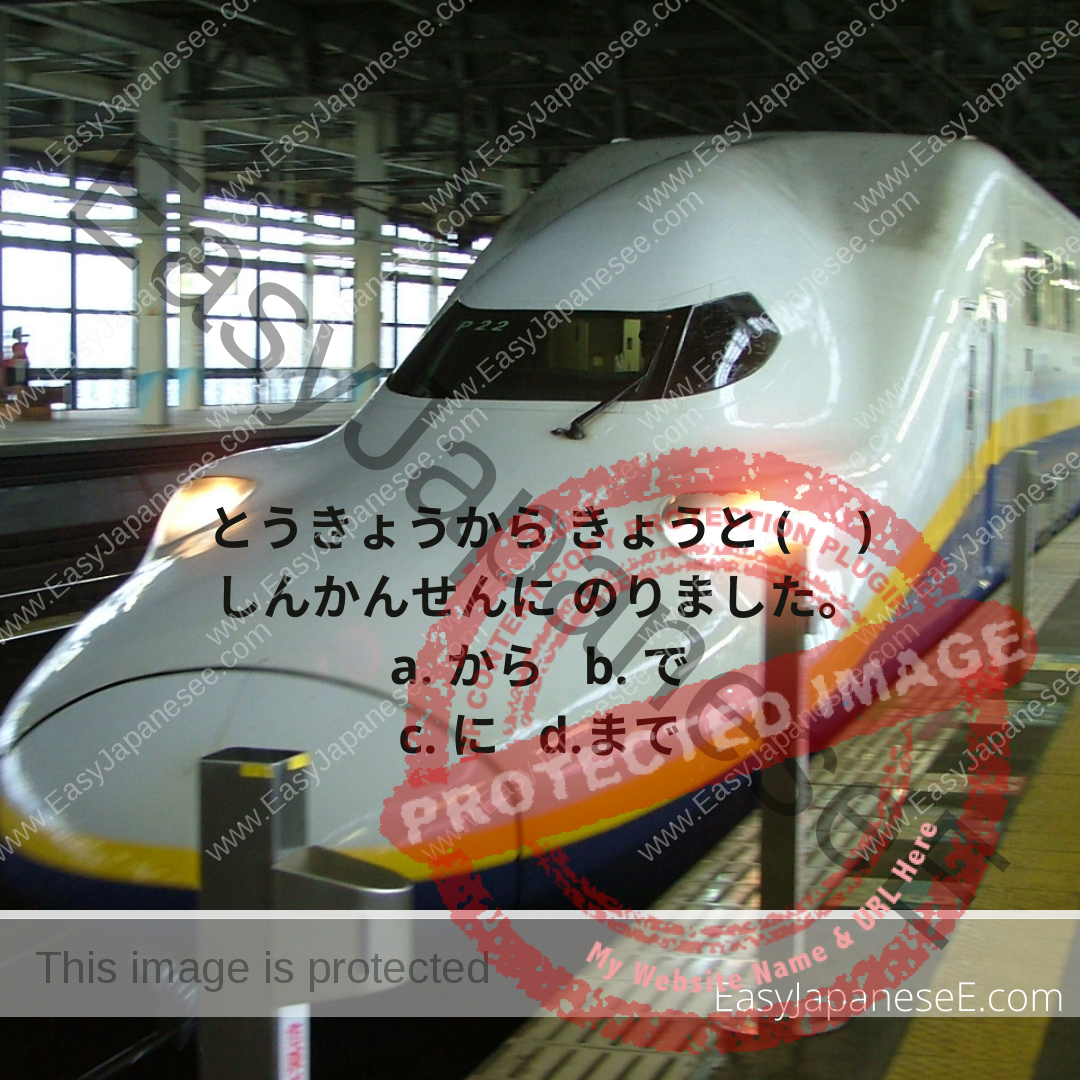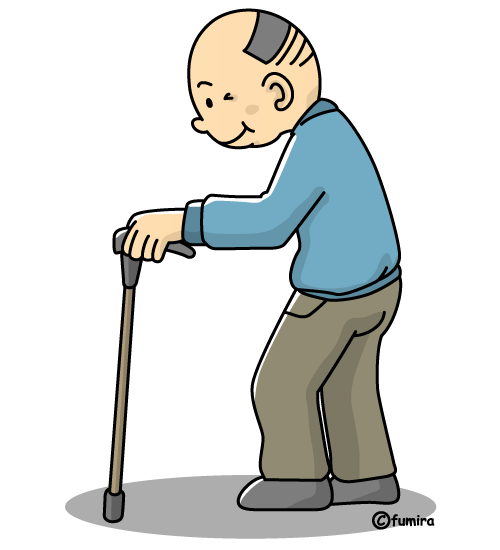What is the difference between the following sentences? わたしは日本語(にほんご)とすうがくをべんきょうします。 わたしは日本語(にほんご)やすうがくをべんきょうします。 The only difference is the first sentence has と (to)…
も
Last Wednesday, I talked about “も/mo” meaning “too” or “also” but if used in a negative sentence with a question…
“You” and “I/me” in Japanese songs
When I teach Japanese to adults, I usually teach “わたし / watashi” for “I/me” as it is the most generic…
“Me too”
How do you say “me too” in Japanese? The correct answer is “わたしも / watashi mo”. “も /…

AからBまで
Today’s Grammar Point: ~から~まで “Aから” means “from A” or “since A” and it can be used for both time and place.…
Take and Bring
On Monday this week, I talked about verbs, いきます/きます/かえります, which can be used with another verb stem and the particle…
Go and See
いきます きます かえります These verbs mean “to go,” “to come” and “to return” respectively and they can be used in…
“will” in Japanese
As you may already know, Japanese does not have a future tense, so when you want to say something like…

Frequency Expressions
If you get asked, よくコーヒーをのみますか。(Do you drink coffee often?), how would you answer that? I would say: はい、まいにちのみます。(yes, I drink…

~から and ~ので connection difference
The expressions for giving a reason and/or stating a cause, ~から and ~ので are almost interchangeable except for… This post explains when they are not.

~から vs ~ので
Both ~から and ~ので are used to add a reason or cause. The difference between the two is getting smaller but their nuances are not the same. Find out here.
I want to eat icecream.
Verb stem + たいです means “I want to ….”, so the above sentence in Japanese is アイスクリームが食(た)べたいです。 “verb stem”…
テレビを見てからケーキを焼きますand テレビを見たからケーキを焼きます
Can you tell me the difference between the above two? The aesthetic difference is betweenて andた only. テレビを見てからケーキを焼きます means…

あります vs います
あります and います are both used in a sentence meaning, “there is/are ….” They are verbs to describe “existence.” This post explains when to use which.
骨(ほね)が折(お)れています
骨が折れています Last week I wrote “てForm + います” expresses an action being undertaken and that in English the same thing…
live, know, love, believe, have, etc.
Do you know the Japanese words for these verbs? They are respectively: 住(す)んでいます 知(し)っています 愛(あい)しています 信(しん)じています 持(も)っています Yesterday, I…
てForm + います
Yesterday, I talked about how to use てform . Today, I will talk about one of the most basic usage…
ばんごはんのあと、べんきょうするつもりです。
つもり is used to state an "intention." So the above sentence means “I’m planning to study after dinner.” You usually…
Negative form of です
I made some quizzes on Canvas LMS for my HSC preparation course students and one of the question I put…
